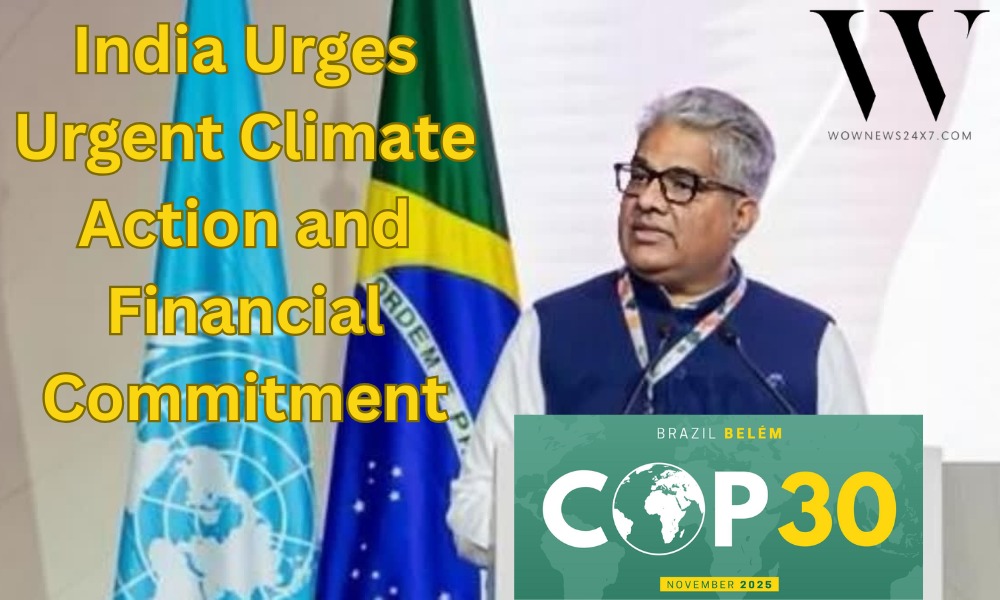At the COP30 summit, India called on developed countries to achieve net zero emissions much earlier than current commitments and significantly increase climate finance to trillions rather than billions. India stressed equitable support for developing nations to balance emission reduction with economic growth.
India, speaking at the 30th UN Climate Change Conference (COP30) in Belém, Brazil, delivered a powerful message urging developed nations to accelerate their net zero emissions targets and expand climate finance substantially. Environment Minister Bhupender Yadav emphasized that the current pace and scale of commitments from richer countries are insufficient to limit global warming to 1.5°C.
Key Highlights:
Accelerated Net Zero Targets: India insists developed countries must reach net zero far earlier than their current target dates to preserve carbon space for developing countries striving to balance growth and emissions reduction.
Climate Finance at Scale: India demands climate finance on the scale of trillions, not billions, with new, additional, and concessional funds to assist vulnerable economies. The existing financial commitments fall short of actual needs.
Equitable and Predictable Support: Concessional finance, technology access, and capacity building remain foundational for developing nations to implement ambitious Nationally Determined Contributions (NDCs) and adapt to climate risks.
Common but Differentiated Responsibilities: India reaffirmed the importance of the Paris Agreement's principles—particularly the common but differentiated responsibilities and respective capabilities (CBDR-RC)—stressing that developed countries should uphold these commitments.
Global Climate Leadership: While India aims to achieve net zero by 2070—later than many developed nations—it has expanded forest cover significantly and champions global cooperation through initiatives like the International Solar Alliance.
Adaptation Focus: India pushed for enhanced financing for climate adaptation to protect billions of vulnerable people impacted by climate change-induced extreme weather and disasters.
This urgent call by India underscores the crucial role of richer nations in providing leadership, financial support, and technology transfer to ensure a just and effective global climate response.
Sources: Moneycontrol, Indian Express, DownToEarth, New Indian Express, Business Standard, Deccan Herald.
